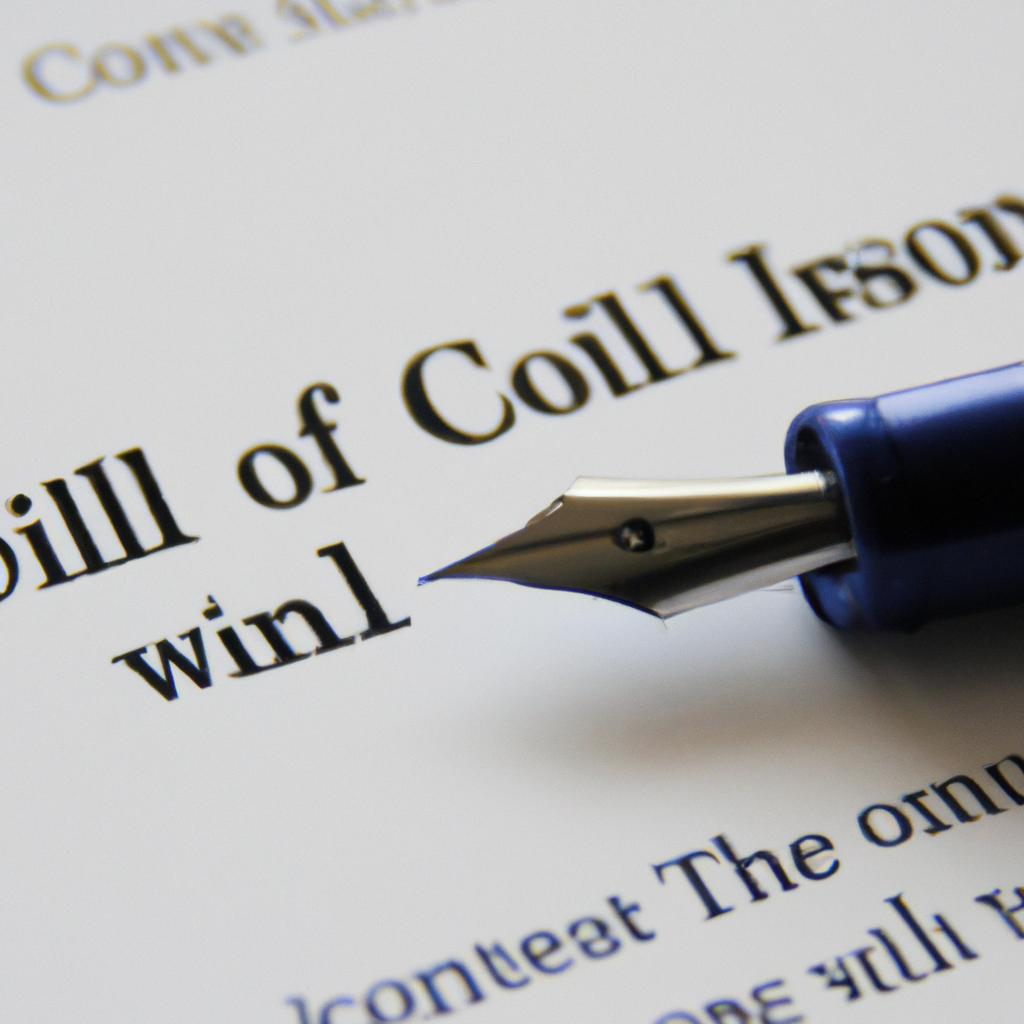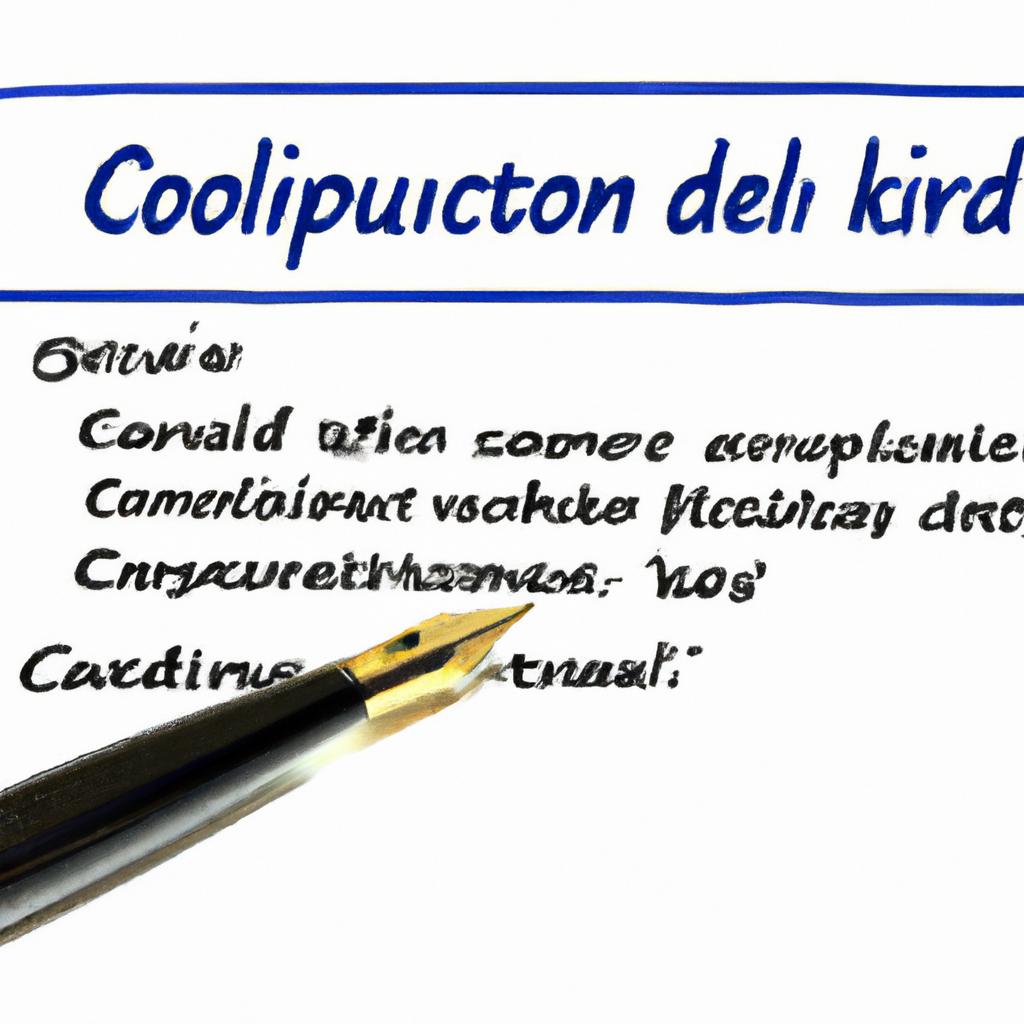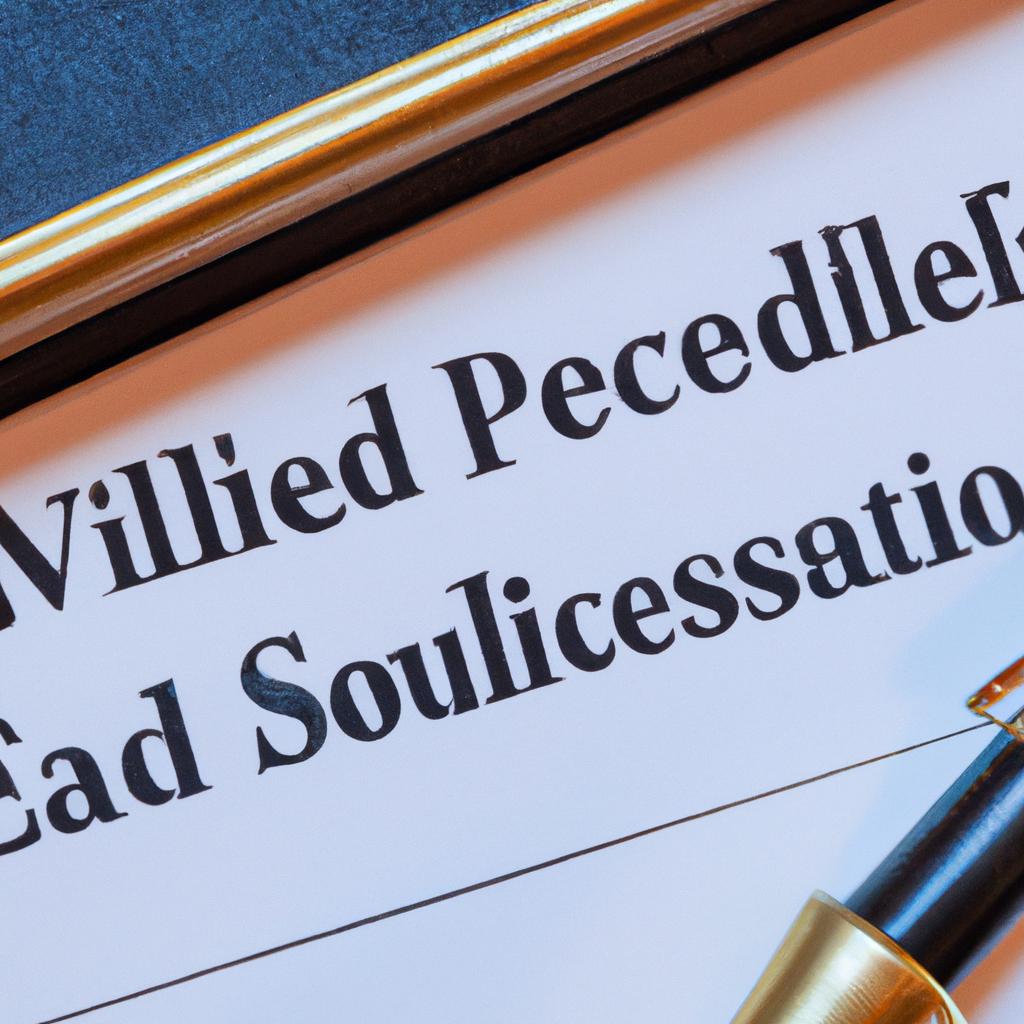In the intricate realm of estate planning and testamentary dispositions, the addition of a codicil to a will holds a profound significance. As seasoned legal practitioners at Morgan Legal Group in New York City, we navigate the complexities of codicils with precision and expertise. In this article, we delve into the nuances of codicils for wills, exploring their purpose, execution, and implications in ensuring the efficacy of testamentary intentions. Join us as we unravel the intricacies of this essential tool in the realm of estate planning.
The Importance of Including a Codicil in Your Will
In estate planning, it is crucial to ensure that your will reflects your current wishes and circumstances. One way to make changes to your will without completely rewriting it is by including a codicil. A codicil is a legal document that allows you to make small amendments or additions to your existing will. This can be particularly useful if your life circumstances change or if you wish to update beneficiaries, assets, or any other details of your will.
By including a codicil in your will, you can ensure that it remains up-to-date and accurately reflects your wishes. This can provide peace of mind knowing that your assets will be distributed according to your current intentions. Additionally, a codicil can help avoid disputes among beneficiaries by clearly outlining any changes or additions to your will. When creating a codicil, it is important to consult with an experienced estate planning attorney to ensure that it complies with all legal requirements and is properly executed.

Key Considerations When Drafting a Codicil
When drafting a codicil for a will, there are several key considerations that should be taken into account to ensure that the document is legally valid and accurately reflects the testator’s wishes. One important factor to consider is the language used in the codicil, as it must be clear and unambiguous to avoid any potential misunderstandings or challenges to the document’s validity. It is also crucial to ensure that the codicil is executed in accordance with the legal requirements of the jurisdiction in which the will was probated.
- Review Existing Will: Before drafting a codicil, it is essential to review the existing will to determine which provisions need to be amended or updated.
- Consult with an Attorney: Seeking the guidance of an experienced estate planning attorney can help ensure that the codicil meets all legal requirements and accurately reflects the testator’s intentions.

Common Mistakes to Avoid When Amending a Will with a Codicil
When amending a will with a codicil, it is important to avoid common mistakes that could potentially invalidate the document or create confusion among beneficiaries. One common error to be mindful of is failing to properly execute the codicil in accordance with state laws. Make sure to follow the necessary formalities, such as having the document signed in the presence of witnesses and notarized if required.
Another mistake to avoid when amending a will with a codicil is being unclear or vague in the language used. It is crucial to be precise and specific in detailing the changes you wish to make to the original will. Ambiguity can lead to disputes among family members and may result in the document being challenged in court. Take the time to carefully review and revise the codicil to ensure that your intentions are clearly articulated.

Recommendations for Ensuring the Validity and Effectiveness of a Will Codicil
When creating a codicil for a will, it is crucial to ensure its validity and effectiveness. Here are some recommendations to help you achieve this:
1. Consult with an Experienced Attorney: It is highly recommended to seek the advice of a knowledgeable estate planning attorney when drafting a codicil. They can provide guidance on the legal requirements and ensure that the document is legally binding.
2. Clearly Identify the Will: Clearly state the name and date of the original will that the codicil is amending. This will help avoid any confusion or disputes regarding which will the codicil pertains to.
Q&A
Q: What is a codicil for a will?
A: A codicil is a legal document that allows you to make changes or additions to your existing will.
Q: When should you consider adding a codicil to your will?
A: You should consider adding a codicil to your will if you need to update beneficiaries, make changes to your assets, or revise any other provisions in your will.
Q: Is it better to create a new will or to add a codicil?
A: It depends on the extent of the changes you need to make. If the changes are significant, it may be better to create a new will. However, if the changes are minor, a codicil can be a more efficient option.
Q: What are the requirements for creating a valid codicil?
A: To create a valid codicil, you must sign and date the document in the presence of witnesses. It is also recommended to have the document notarized for added validity.
Q: Can a codicil be contested in court?
A: Just like a will, a codicil can be contested in court if there are suspicions of undue influence, lack of capacity, or any other legal grounds for contesting the document.
Q: How often should you review and update your will and codicil?
A: It is recommended to review and update your will and codicil every few years or whenever there are significant life changes, such as marriage, divorce, birth of a child, or acquisition of new assets.
In Retrospect
In conclusion, a codicil can be a useful tool for making changes to your will without having to rewrite the entire document. Whether you want to add new beneficiaries, update asset distributions, or make any other amendments, a codicil can help ensure that your final wishes are accurately reflected. Remember to consult with a legal professional to ensure that your codicil is properly executed and meets all legal requirements. With a codicil in place, you can have peace of mind knowing that your will reflects your current intentions and wishes.
 Title: Understanding Codicils for a Will: A Comprehensive Guide
Title: Understanding Codicils for a Will: A Comprehensive Guide
Meta title: A Guide to Codicils for Wills: Everything You Need to Know
Meta description: Discover the importance of codicils for wills, how you can use them and the benefits they offer. Read this comprehensive guide to write a strong codicil for your will.
A will is an essential legal document that outlines the distribution of a person’s assets and possessions after their passing. It ensures that their final wishes are carried out and helps their loved ones avoid legal complications. However, life is ever-changing, and so are our circumstances. As time goes on, our priorities and preferences can also shift, making it necessary to update our will accordingly. This is where a codicil comes into play.
A codicil is an amendment or addition made to an existing will without revoking the entire document. It allows a person to make changes or additions to their will rather than creating a new one altogether. In this article, we will delve deeper into codicils for wills, their importance, and how you can use them.
What is a Codicil?
A codicil is a document used to modify an existing will without the need to create a new one. It typically contains specific changes, additions or revocations to the original will. It must be signed, dated, and witnessed in the same way as a will to be legally recognized.
Why are Codicils Important?
A will is a crucial document that outlines how a person’s assets and possessions should be distributed after their death. As our lives and circumstances change, it is essential to review and update our will to reflect our current wishes. This is where codicils play a significant role. They provide a means to make amendments or additions to the original will without having to rewrite it entirely.
When Would You Use a Codicil?
There are several circumstances where a codicil may be necessary, such as:
1. Changes in marital status – If you get married, your existing will may become void. Thus, you may need to create a new will or use a codicil to include your spouse in your inheritance plans.
2. Birth or adoption of children – The birth or adoption of a child may also prompt the need for a codicil to include them in your will.
3. Changes in beneficiaries – If you want to add or remove beneficiaries from your will, a codicil can help you make these changes easily.
4. Changes in assets – If you acquire new assets or dispose of existing ones, it is essential to update your will accordingly using a codicil.
5. Changes in your wishes – As our lives and circumstances change, our priorities and wishes may also change. A codicil allows us to update our will to reflect these changes.
Benefits of Using Codicils for Wills
1. Saves time and money – Creating a new will is time-consuming and can be expensive. A codicil, on the other hand, is a quicker and more cost-effective way to make amendments to your will.
2. Flexibility – A codicil provides the flexibility to make minor changes or additions to your will, without revoking the entire document.
3. Avoids confusion – If you make significant changes to your will without using a codicil, it can create confusion and disputes among your family and loved ones after your passing. A codicil ensures that your wishes are clearly laid out and avoids any potential confusion.
4. Maintains privacy – A codicil allows for changes to be made privately without the need to make them public by creating a new will.
Step-by-Step Guide to Writing a Codicil
Codicils for wills must adhere to specific legal requirements to be considered valid. Here is a step-by-step guide to help you create a strong and legally recognized codicil:
1. Review your current will – Take the time to review your existing will and identify the changes or additions you want to make. This will help you determine the contents of your codicil.
2. Consult with a lawyer – It is always advisable to seek legal advice when making changes to your will. A lawyer can guide you through the process and ensure that your codicil is legally binding.
3. Identify the changes – Clearly state the changes or additions you want to make in your codicil. It should be as specific and detailed as possible to avoid any confusion or disputes after your passing.
4. Create the document – You can either create a new document or use the same format and style as your existing will. Make sure to include the date and a statement indicating that the codicil is an addition to your will.
5. Sign and witness the codicil – Just like a will, a codicil must be signed by the testator (the person making the changes) and two witnesses. The signature must be made in the presence of each other to make it legally binding.
6. Review and store the codicil – After creating your codicil, it is important to review it periodically to ensure it still reflects your wishes. Make sure to store it in a safe and accessible place, along with your original will.
Case Study:
Mrs. Jones created her will ten years ago, leaving her entire estate to her son. However, over the years, she developed a close relationship with her daughter-in-law and wanted to include her in her will. Instead of rewriting her entire will, Mrs. Jones decided to use a codicil to add her daughter-in-law as a beneficiary to her estate.
First-hand Experience:
As a lawyer with experience in estate planning, I have seen firsthand how codicils for wills have helped my clients make necessary changes to their wills without having to create new ones. It provides peace of mind knowing that their final wishes are clearly outlined and legally recognized.
In conclusion, a codicil is an essential legal document that allows individuals to make changes or additions to their will without having to create a new one. It provides flexibility, saves time and money, and ensures our wishes are carried out after our passing. If you are considering making changes to your will, consult with a lawyer to help you create a strong and legally recognized codicil. Remember to review and update your codicil periodically to ensure it still reflects your wishes.






